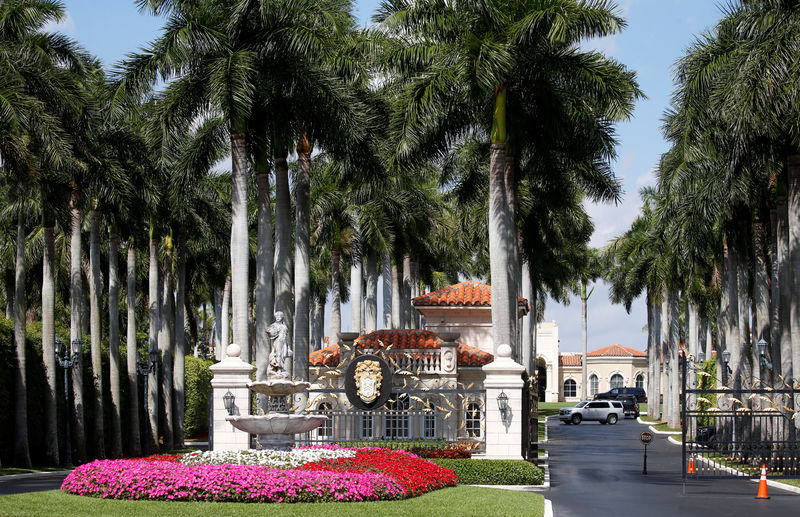By Jeff Mason and Andy Sullivan
WEST PALM BEACH, Fla./WASHINGTON (Reuters) - President Donald Trump may do another round of interviews for the position of national security adviser with new or existing candidates on Monday as he scrambles to fill the post following the ouster of Michael Flynn.
Trump interviewed four finalists on Sunday and may meet with some of them again on Monday, White House spokeswoman Sarah Sanders told reporters.
The president interviewed acting adviser Keith Kellogg, former U.S. Ambassador to the United Nations John Bolton, Lieutenant General H.R. McMaster and Lieutenant General Robert Caslen at his Mar-a-Lago resort.
"We may have some additional meetings and names tomorrow, and may also meet with a couple of those people again," Sanders said in Florida.
Trump returns to Washington on Monday.
The national security adviser is one of the most senior jobs at the White House, holding broad influence over U.S. foreign policy across the globe and presiding over the National Security Council staff.
White House officials made clear on Sunday that the new adviser would have autonomy over staffing decisions, an issue that has been reported to have thwarted some other candidates.
Trump's first choice to fill the job after Flynn's departure, Vice Admiral Robert Harward, turned it down, citing family and financial reasons. Another potential choice, David Petraeus, a retired general and former CIA chief who resigned in 2012 over an extramarital affair, was cut from the president's short list.
Sources familiar with the candidates' thinking said they both wanted control over staffing of their team, and Trump was reluctant to grant that authority.
White House Chief of Staff Reince Priebus denied the reports that Harward and Petraeus wanted more control than Trump was prepared to give, and said in an interview on "Fox News Sunday with Chris Wallace" that the new adviser "can do whatever he or she wants to do with the staffing."
He said the issue never came up in discussions with Harward and they "hadn't really gone down the road" with Petraeus.
The White House confirmed that Craig Deare, the NSC's senior director for Western Hemisphere Affairs, had left that role. Politico reported that he was dismissed for criticizing the president and his top aides.
"He was just sent back to his original position, so he wasn’t fired," Sanders said. Deare is on the faculty of the National Defense University.
Asked if government employees should be concerned that they would lose their jobs if they criticized Trump, Sanders said: "I don’t think that any person that is there in order to carry out the president's agenda should be against the president's agenda."
The national security adviser is an independent aide to the president and does not require confirmation by the U.S. Senate. The role has varied from administration to administration, but the adviser attends National Security Council meetings along with the heads of the State Department, the Department of Defense and key security agencies.
Trump has added Steve Bannon, his chief White House strategist, as a regular attendee of NSC meetings. Political strategists have not typically been among NSC participants and Bannon's addition has drawn sharp criticism because of his previous role heading right-wing website Breitbart News.

For a Graphic on Trump assembles his administration, click: http://fingfx.thomsonreuters.com/gfx/rngs/USA-TRUMP/010030YY23R/index.html